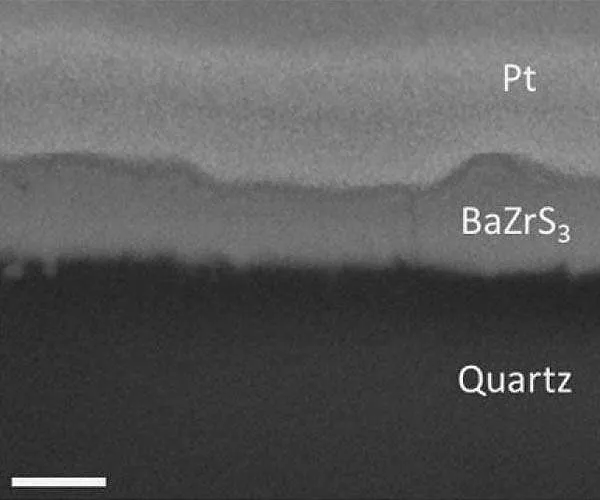Eco-friendly substance reveals assurance for solar cell usage
- A prevalent change to solar power will certainly depend greatly on trusted, secure, as well as cost effective innovation like batteries for power storage space as well as solar cells for power conversion. At Rensselaer Polytechnic Institute, scientists are concentrated greatly on both parts of that formula.

In study released in Advanced Functional Materials, a group of designers, product researchers, and also physicists showed just how a brand-new product - a lead-free chalcogenide perovskite - that had not formerly been taken into consideration for usage in solar cells can give a much safer and also much more efficient alternative than others that are generally thought about.
Organic-inorganic halide perovskites, a sort of crystalline mineral, have actually revealed assurance as an essential element in solar cells, yet they have actually additionally presented big obstacles. Their distinct homes are really efficient in transforming power from the sunlight right into power as well as they are more economical than silicon, which has actually commonly been made use of in this capability.
Nevertheless, they are unpredictable when they are revealed to wetness and also sunshine, decline in effectiveness as they weaken, as well as they break down right into lead as well as lead iodide - both of which are unsafe compounds.
" These sorts of products provide you excellent efficiency on the first day, however inside 3 or 4 days, optimum a week, you locate that their efficiency goes down precipitously," stated Nikhil Koratkar, a gifted teacher of mechanical, aerospace, as well as nuclear design at Rensselaer, as well as the equivalent writer on this paper. "Besides, these products are not eco-friendly because they include lead."
To conquer that difficulty, Koratkar as well as a group of scientists, that included Tushar Gupta, a doctoral pupil in mechanical design, showed exactly how a slim movie of a lead-free chalcogenide perovskite, especially barium zirconium sulfide (BaZrS3), can possibly change lead-containing perovskites for a much more secure, as well as a lot more steady application.
In order to evaluate this substance's capability to transform light into electric existing, the group utilized it to develop a light sensing unit. The scientists' operate in the laboratory exposed that BaZrS3 is fundamentally a lot more waterproof as well as secure.
When subjected to wetness or extreme sunshine, they were able to show via academic computations as well as computational modeling that BaZrS3 is very immune to damaging or responding down. This was likewise experimentally confirmed with comprehensive device-aging researches that were performed over a duration of 4 weeks. In addition to every one of that, Koratkar stated, making this substance is in fact more economical than premium silicon.
" The National Academy of Engineering has actually specified 14 grand difficulties; among those is to make collecting power from the sunlight less costly as well as a lot more extensive," Koratkar stated.
" That's the inspiration of this job, ahead up with brand-new products that can equal the effectiveness of silicon, however reduce the price of producing solar cells, which is the vital to attaining this objective."
Also read

